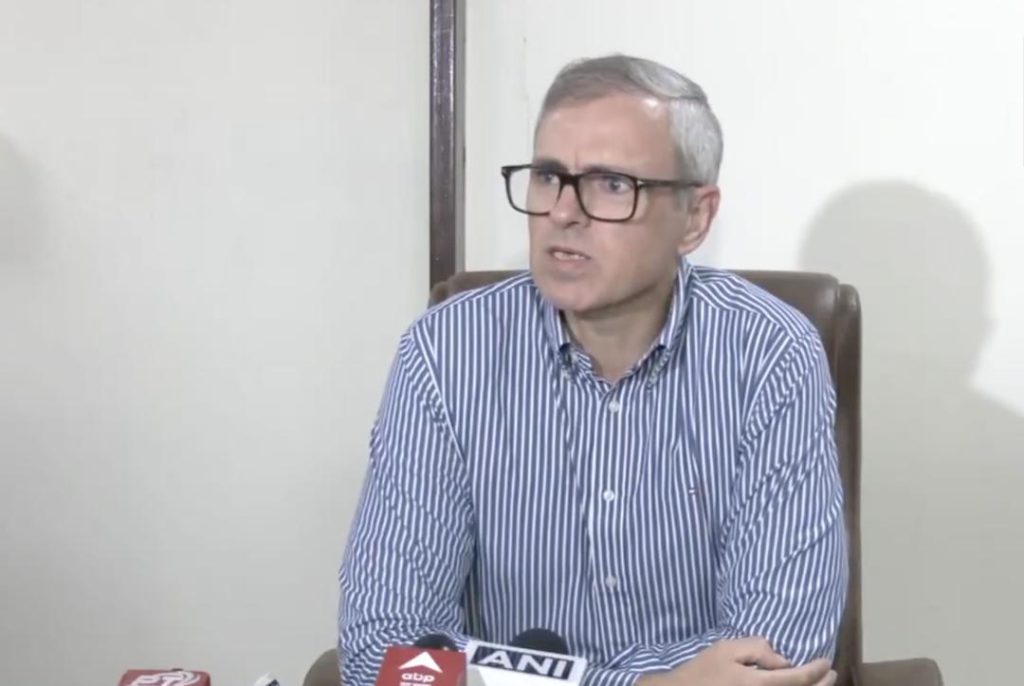
Why should I send water to Punjab?: J&K CM on canal proposal
The recent proposal to build a 113 km-long canal to redirect surplus water from three western rivers of the Indus system in Jammu and Kashmir to Punjab, Haryana, and Rajasthan has sparked a heated debate in the region. At the center of the controversy is Jammu and Kashmir Chief Minister Omar Abdullah, who has raised several questions about the proposal. In a recent statement, Abdullah expressed his reservations about diverting water from Jammu and Kashmir to other states, asking, “Why should I send water to Punjab?”
Abdullah’s concerns stem from the fact that Punjab has historically been one of the most water-secure regions in India, thanks to the Indus Waters Treaty signed between India and Pakistan in 1960. According to the treaty, the waters of the Indus, Jhelum, and Chenab rivers were allocated to Pakistan, while the waters of the Ravi, Beas, and Sutlej rivers were allocated to India. Punjab, being the most water-abundant state in the region, has always received a significant share of these waters.
However, Jammu and Kashmir, which shares a border with Punjab, has historically faced water scarcity issues. The state’s water resources are limited, and it relies heavily on the Jhelum and Chenab rivers, which are also part of the Indus Waters Treaty. Abdullah has argued that Jammu and Kashmir’s water needs are not being met, and diverting water to Punjab would exacerbate the state’s water crisis.
In his statement, Abdullah also questioned whether Punjab had ever shared its water resources with Jammu and Kashmir in the past. “Did they give us water when we needed it?” he asked. This question highlights the long-standing water-sharing disputes between the two states. While Punjab has historically been a water-surplus state, Jammu and Kashmir has often found itself struggling to meet its water demands.
The proposal to build the 113 km-long canal has been put forward by the Jammu and Kashmir government, but it has faced opposition from several quarters. The canal would require significant investments and would require the diversion of water from the western rivers, which would have a significant impact on the state’s water resources.
Abdullah’s concerns are not without merit. Jammu and Kashmir is already facing a severe water crisis, with many areas experiencing drought-like conditions. The state’s water supply is insufficient to meet the demands of its growing population, agriculture, and industry. Diverting water to Punjab would only exacerbate the crisis.
Moreover, the proposal has raised concerns among environmentalists and conservationists. The Indus Waters Treaty was signed to ensure the equitable distribution of water resources between India and Pakistan, and any changes to the treaty would require careful consideration of the environmental and ecological impacts.
The canal proposal has also sparked a debate about the need for water conservation and management in the region. While Punjab has historically been a water-surplus state, it is not immune to water scarcity. The state’s agriculture sector is heavily dependent on irrigation, and water conservation measures are urgently needed to ensure the long-term sustainability of the sector.
In conclusion, Jammu and Kashmir Chief Minister Omar Abdullah’s questions about diverting water to Punjab are valid and merit serious consideration. The proposal to build the 113 km-long canal raises several concerns, including the impact on Jammu and Kashmir’s water resources, the historical water-sharing disputes between the two states, and the need for water conservation and management in the region.
As the debate continues, it is essential to prioritize the needs of Jammu and Kashmir and ensure that its water resources are protected and managed sustainably. Any changes to the Indus Waters Treaty would require careful consideration of the environmental and ecological impacts, as well as the needs of the state’s growing population, agriculture, and industry.






